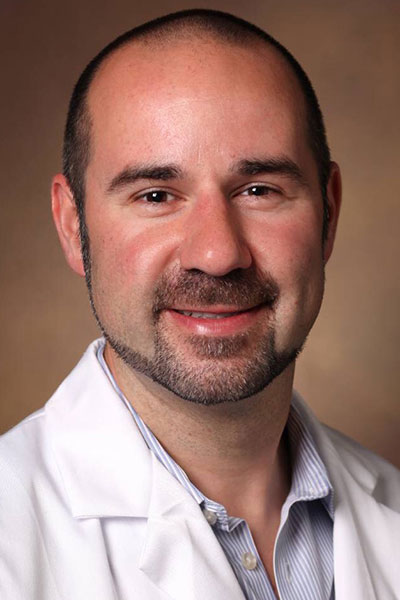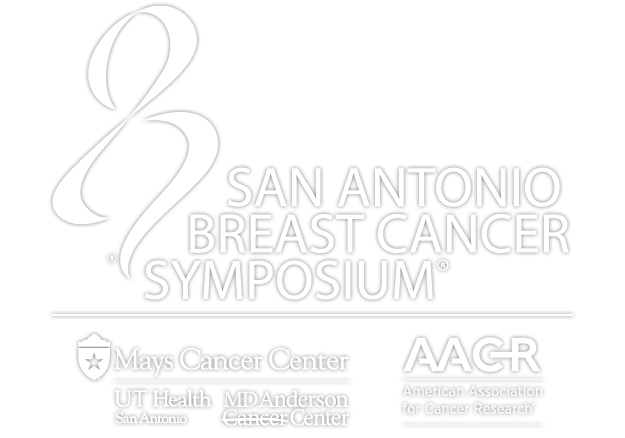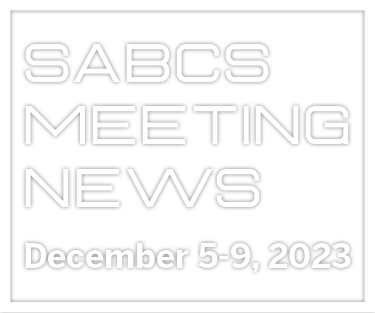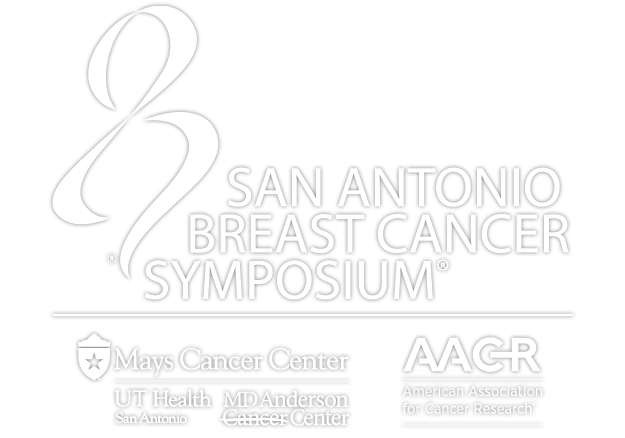Senescence, a heterogeneous stress-induced cellular response that can be driven by aging, oncogenesis, and even cancer therapy-mediated damage, is recognized as a double-edged sword in cancer. Senescence induced by anti-cancer treatments can promote anti-tumor immunity and immune clearance; however, it can also drive tumor recurrence/relapse and therapeutic failure, by promoting nearby cancer cell proliferation and migration.

In State-of-the-Art Session 2: Implications of Senescence for Breast Cancer Biology and Treatment, Justin Balko, PharmD, PhD, Associate Professor of Medicine, Vanderbilt-Ingram Cancer Center, will moderate the discussion on the role of senescence in breast cancer, including mechanistic underpinnings of senescence-mediated tumor immune microenvironment modulation, therapy-induced senescence, and therapeutic resistance driven by senescence-like phenotypes. The session will be held at the Hemisfair Ballroom 1-2, from 1:00 p.m.–2:00 p.m. CT on Thursday.
Dr. Balko’s research focuses on uncovering mechanisms of sensitivity or resistance to therapies, particularly immunotherapies, in breast and other cancers. Although senescence has long been recognized to play dual and opposing roles in cancer and therapeutic response, the discussion of its role in breast cancer at 2023 SABCS is apropos and timely. Dr. Balko said, “[A] number of papers were published in high-impact journals in the last few years that kind of all converge on this idea that we might be able to activate tumor immunity specifically against senescent cells, because they tend to secrete [certain molecules] into the microenvironment that might be targetable. And we might be able to leverage [these secreted molecules as targets of] immunotherapies against [cancer] cells, particularly in combination [therapies].”
Dr. Balko alluded to the significant body of work generated in the last couple of years focused on delineating the senescence-associated secretory phenotype (SASP) and the impact of SASP on therapeutic outcomes in patients with breast cancer. Marcus Ruscetti, PhD, Assistant Professor, University of Massachusetts Medical School, will speak on the role of SASP in modulating immune responses in the opening presentation of the session. Dr. Ruscetti’s research focuses on mechanisms through which tumors evade immune surveillance and ways for deploying/restoring SASP to overcome therapeutic resistance.
Many types of anti-cancer therapies— chemotherapy, radiotherapy, CDK4/6 inhibitors, epigenetic modulators, and immunotherapy—are known to induce senescence. Therapy-induced senescence in breast cancer will be the topic explored by James Jackson, PhD, Associate Professor of Biochemistry and Molecular Biology, Tulane University School of Medicine. Dr. Jackson’s research focuses on breast cancer tumorigenesis, drug response, and cellular senescence. In a recent publication, work led by Dr. Jackson led to the discovery of targetable immune-modulatory programs activated in the breast cancer cells that survive chemotherapy.
Senescence also plays a role in tumor dormancy, Dr. Balko noted. He added that although treatments have yielded favorable outcomes in patients with breast cancer, recurrence with metastatic disease, both in triple-negative and estrogen receptor-positive disease, can occur, even after a prolonged period. Dr. Balko said, “So a big push to understand why this occurs has led to this idea of tumor cell senescence, meaning that the cancer cells are ‘quiet’ and not multiplying and just sort of sitting there in what we call metastatic niches [in different places throughout the body]. Then there is a signal that trips them to start proliferating again and become a metastatic site.” An improved understanding of the signals that prompt dormant cancer cells to start dividing or become mobilized into a metastatic site can help develop novel therapies that target these dormant cells, using “senolytics, meaning drugs that specifically kill senescent tumor cells,” added Dr. Balko.
Shom Goel, MD, PhD, Associate Professor, University of Melbourne and Group Leader and Medical Oncologist, Peter MacCallum Cancer Centre will give the final presentation of the session, on clinical trials and new therapeutics. Uncovering mechanisms of therapy-induced senescence and how they may be leveraged to target therapeutic vulnerabilities in cancer cells is one of the key areas explored in Dr. Goel’s research. His body of work also includes the development of new models of cancer dormancy.



